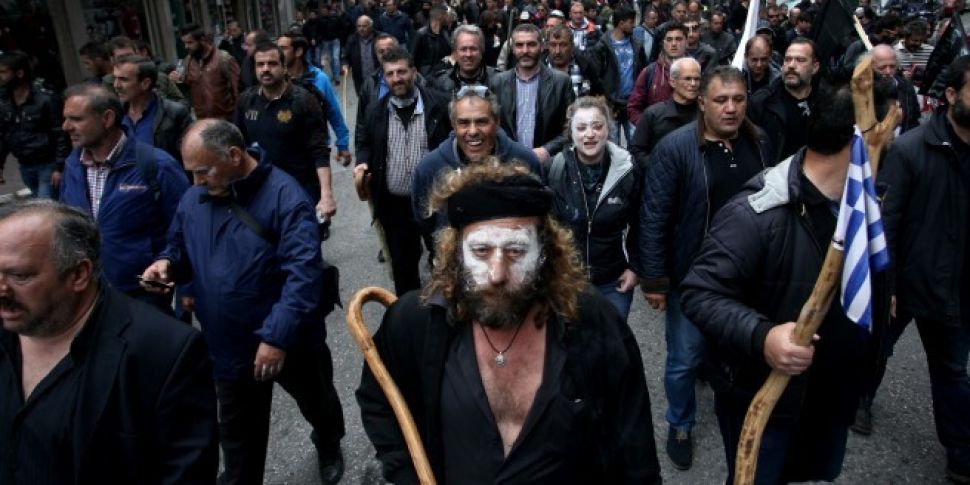Greece remains deadlocked in talks with its bailout monitors as they try to hammer out a deal to unlock the next phase of its €86bn bailout.
European Council President Donald Tusk said today, "We are close to concluding this demanding procedure ... We have to be contained on optimism but I feel more optimistic."

Why the delay?
As the Greek economy remains reliant on bailout top ups, it needs to live up to the terms of its bailout agreement which require 'economic reforms' (deregulation and additional cuts in public spending) to keep the cash flowing in.
The latest sticking issue is additional changes to public pensions which would marginally increase payouts for those in the lowest pension band, while slashing higher payouts. This would result in an overall pension cost reduction of 15% for the government.
Who's involved?
At the moment, the IMF is not formally involved in the current third Greek bailout, although both its leaders and the EU say they are working towards it becoming a full participant.
The delay has centred around disagreements regarding the terms of the bailout.

This has been further complicated by a split between IMF leaders concerning the future targets in Greece.
Meanwhile, the Greek government believes it's been caught up in a power struggle between the EU and the IMF.
Greek PM Alexis Tsipras said the two are "playing games" and damaging Greece.
"The Greek economy is ready to leave the crisis behind it. But despite the impressive fiscal results, some of our creditors appear unrepentant," he added.
Will the IMF come in?
The IMF has signalled that it wants to take part - if terms can be agreed to.
This could require EU institutions to agree to some form of debt relief for Greece.

"Mrs. Lagarde (the IMF's managing director) again reassured the finance minister that the IMF is participating constructively in the ongoing discussions and continues to work for a quick agreement on full participation in the rescue programme, including funds from the IMF," a spokesperson from the German finance ministry said in January.
German politicians are keen to get the IMF involved as they provide both cash and credability. Its government also wants to avoid controversy at home if the EU is left to manage the Greek bailout by itself ahead of September's German election.
What next?
The Greeks are dependent on this money to make a major loan repayment in July.
Failure to do so would trigger a new Greek crisis.

"I have no doubt that there is no alternative to a positive breakthrough on Friday," Mr Tusk said earlier today.
Greece's economy shrank by 1.2% during the final quarter of 2016, unemployment remains above 20%, and savers and investors have continued to take money out of Greek banks at a worrying pace.









